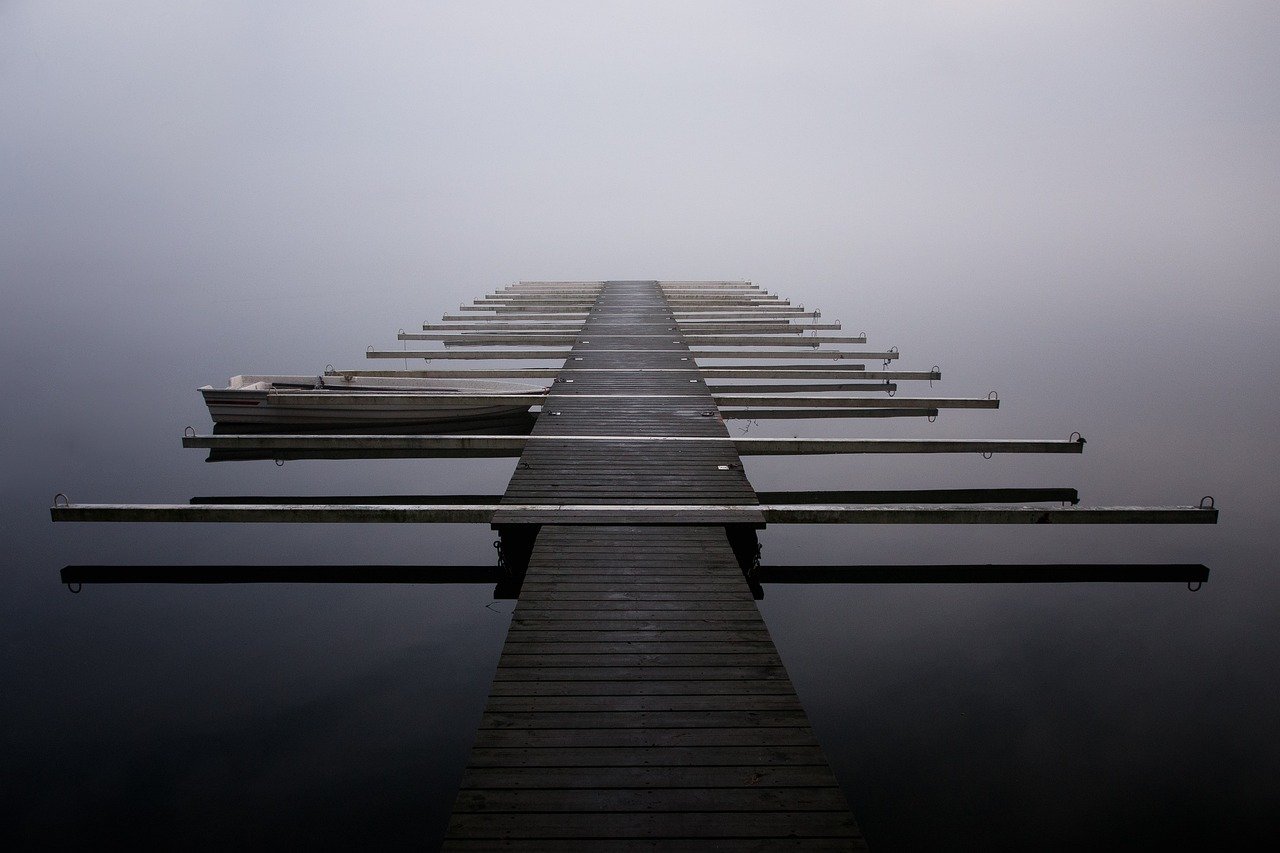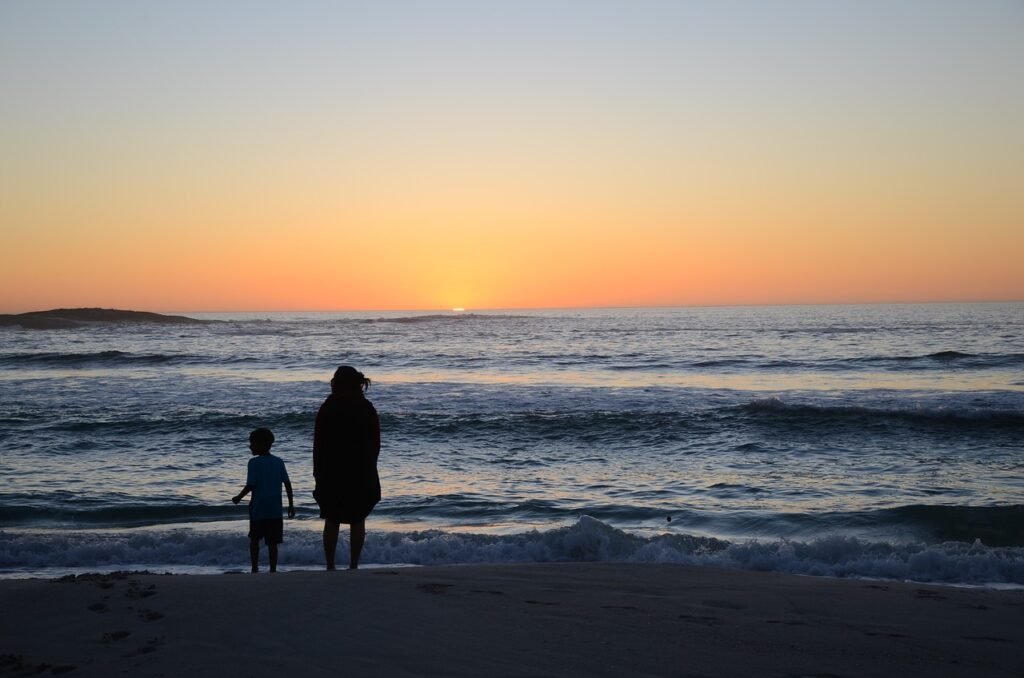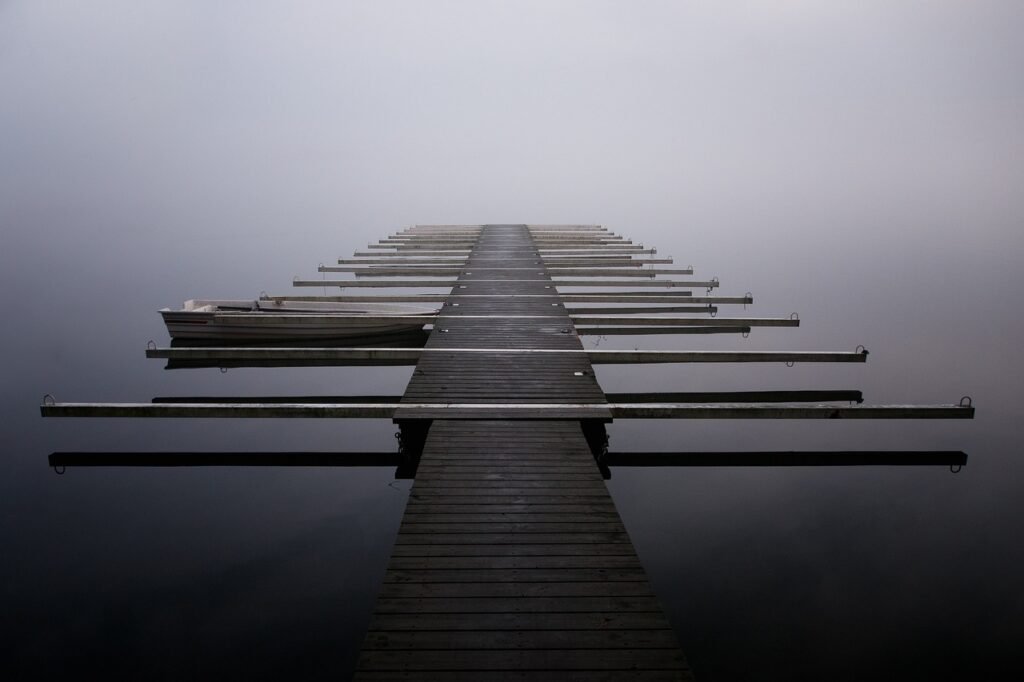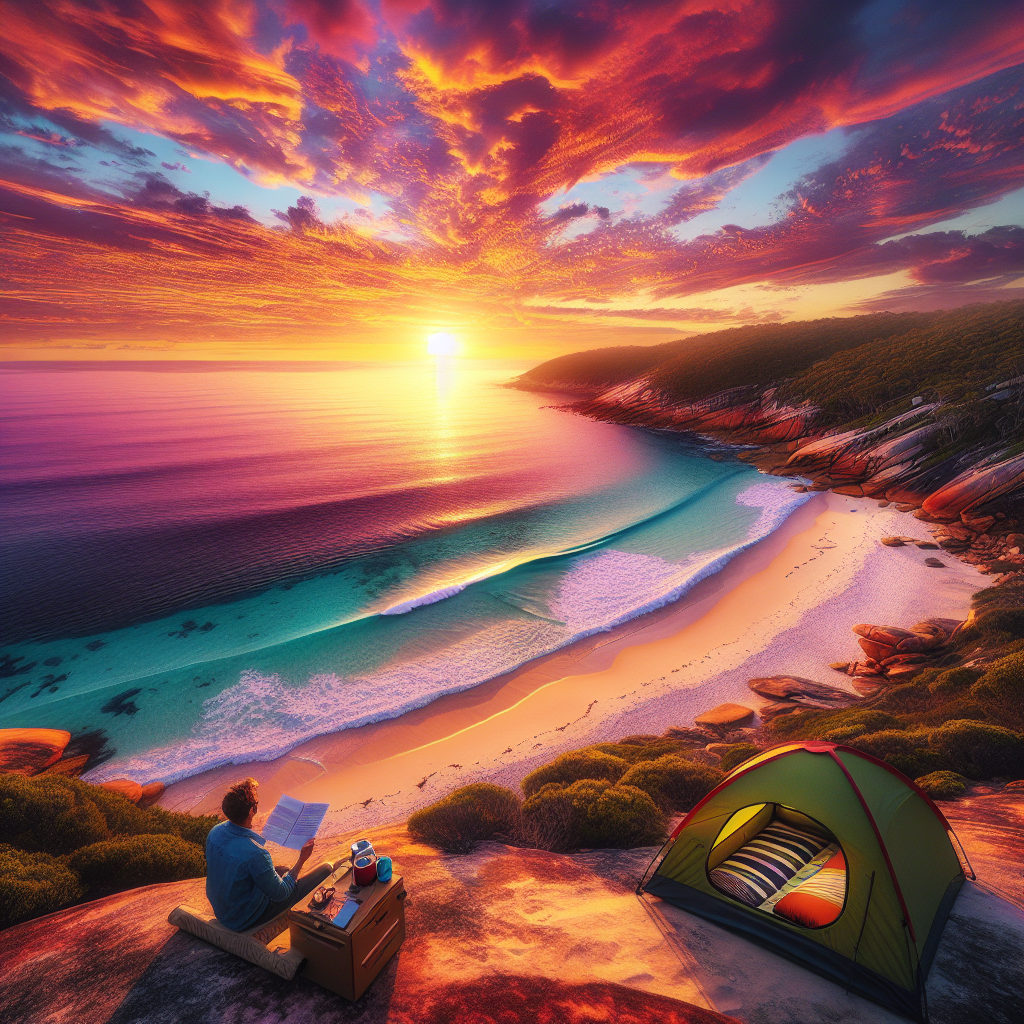

Australia is known for its stunning beaches, and it’s hard not to dream about spending a night under the stars, listening to the gentle crash of waves. But before you pack up your tent and head to the nearest beach, you might be wondering if camping on the beach is actually allowed in Australia. Well, the answer is…yes! Camping on the beach is not only possible but also a popular choice among adventure seekers and nature lovers alike. So grab your camping gear and get ready for an unforgettable beachside experience in the land Down Under.


Regulations and Restrictions
Local Council Regulations
When it comes to beach camping in Australia, it’s important to be aware of the local council regulations. Different councils may have different rules and restrictions in place to ensure the safety and enjoyment of everyone. These regulations may include things like maximum stay duration, designated camping areas, and specific camping permits. It’s essential to research and familiarize yourself with the regulations of the specific area you plan to camp in to avoid any surprises or potential fines.
National Parks and Reserves
Many of Australia’s stunning beaches are located within national parks and reserves. These protected areas are home to unique flora and fauna and offer incredible camping opportunities. However, it’s crucial to be aware of any specific rules and restrictions enforced by these protected areas. Some national parks may require special camping permits, limit the number of campers allowed, or prohibit camping altogether. Make sure to check the regulations of the national park or reserve before planning your beach camping adventure to avoid any disappointments or penalties.
Cultural Heritage Sites
Australia’s vast coastline is not only home to beautiful beaches but also culturally significant sites. These sites may hold great importance to indigenous communities and should be respected and protected. Some cultural heritage sites may have specific restrictions on camping or require permission from the local indigenous community before camping is permitted. It is essential to research and appreciate the cultural significance of these sites and adhere to any guidelines or permits necessary to ensure their preservation.
Seasonal Considerations
Peak Season
During the peak season, which typically falls during school holidays and public holidays, Australia’s beaches can get quite crowded. This means that beach camping spots may be in high demand, making it essential to plan and book in advance. Availability may be limited, and fees may be higher during this time. If you prefer a more lively atmosphere and enjoy socializing with fellow campers, the peak season can be a great time to visit. However, keep in mind that popular spots may be busier and noisier during this time.
Off-Peak Season
If you prefer a quieter camping experience, the off-peak season is your best bet. During the off-peak season, which typically occurs outside school holidays and public holidays, beaches are generally less crowded, allowing for a more peaceful and tranquil camping experience. Availability is usually more abundant, and rates may be lower during this time. It’s important to note that weather conditions may vary during the off-peak season, so it’s a good idea to check forecasts and pack accordingly. Be prepared for cooler temperatures and potential rainfall.
Weather Conditions
Australia’s weather can be quite diverse, and it’s important to consider the weather conditions when planning a beach camping trip. Some beaches may experience extreme heat during the summer months, while others may be prone to strong winds or storms. It’s essential to check the local weather forecast before heading out and pack accordingly. Sun protection, such as hats, sunscreen, and sunglasses, should always be a priority. Additionally, it’s a good idea to have some extra layers of clothing and waterproof gear in case of unexpected changes in weather.
Permits and Fees
Permit Requirements
Before setting up camp on the beach, it’s crucial to check if any permits are required. Some beaches may have specific permits in place to regulate camping activities and protect the environment. These permits may have limitations on campsite numbers, duration of stay, and specific camping areas. Failure to obtain the necessary permits can result in fines or being asked to leave the area. It’s important to research the permit requirements for the beach you plan to camp on and ensure compliance to have a hassle-free experience.
Booking Process
Obtaining camping permits often requires going through a booking process. This process usually involves contacting the relevant authorities or organizations responsible for managing the beach camping area. They will provide you with the necessary information and guide you through the booking procedures. It’s important to book well in advance, especially during peak seasons when availability may be limited. Be prepared to provide details like the number of campers, preferred dates, and any special requirements you may have.
Costs and Fees
Camping on the beach may come with associated costs and fees. These fees contribute to the maintenance and management of the camping areas, ensuring they remain accessible and well-maintained for future campers. The costs and fees can vary depending on factors such as the location, duration of stay, and facilities provided. It’s important to budget for these fees when planning your beach camping trip. Keep in mind that popular and well-equipped campsites may have higher fees due to their amenities and demand.
Campsite Facilities
Toilets and Showers
When camping on the beach, access to toilets and showers is an essential consideration. Many beach camping areas have designated toilet and shower blocks for campers’ convenience and hygiene. These facilities help maintain a clean and pleasant camping environment. However, it’s important to note that the availability and quality of these facilities can vary between different camping areas. Some may offer basic amenities, while others may have more modern and well-maintained facilities. Check the campground’s website or contact the relevant authorities to find out what facilities are available at your chosen campsite.
Electricity and Water
Electricity and water supply may not always be available when camping on the beach. While some campsites provide access to electric power and drinking water, others may be more remote and offer a more rustic camping experience. It’s crucial to plan and pack accordingly if you won’t have access to electricity or a reliable water source. Portable power banks, solar-powered chargers, and extra water containers can come in handy during your beach camping adventure. Consider bringing a water filtration system for treating water from natural sources if necessary.
Trash Disposal
Keeping our beaches and natural environments clean should be a priority for all campers. Proper trash disposal facilities are usually available at beach camping areas to ensure waste is managed responsibly. It’s important to use these facilities and avoid littering or leaving any trace behind. Pack reusable bags for segregating different types of waste and dispose of them in the designated recycling and garbage bins provided. Always leave your campsite as clean, if not cleaner, than you found it to preserve the beauty and integrity of the beach for future visitors.


Choosing the Right Campsite
Accessibility
When choosing a campsite on the beach, accessibility is an important factor to consider. Some camping areas may require a 4WD vehicle or specific off-road capabilities to reach. If you don’t have access to a suitable vehicle, it’s crucial to select a campsite that is easily accessible by conventional cars. Keep in mind that more remote or secluded campsites may offer a greater sense of privacy and tranquility but may require additional planning and preparation to reach.
Privacy
If you value privacy during your camping trip, it’s essential to choose a campsite that offers a suitable level of seclusion. Some beach camping areas may have designated areas or campsites with more space between them, allowing for a quieter and more private experience. Researching the layout of the campground or checking reviews from previous campers can provide insights into the level of privacy offered. Keep in mind that during peak seasons, even the most secluded campgrounds may still have a higher level of activity and noise.
Scenic Beauty
One of the greatest joys of beach camping is waking up to breathtaking views and natural beauty. When choosing a campsite, consider the scenic beauty of the area. Some beaches may offer stunning sunrises or sunsets, while others may have unique rock formations or wildlife viewing opportunities. Researching the natural attractions and features of the camping area can help you select a campsite that aligns with your desired scenic experiences. Don’t forget to pack a camera to capture the incredible moments and vistas you encounter along the way.
Beach Activities
Swimming and Surfing
Beach camping in Australia gives you the perfect opportunity to enjoy the water. Many of Australia’s beaches offer safe swimming areas and ideal conditions for surfing. Before jumping in, it’s important to assess the current conditions, check for any warnings or signs, and be aware of potential hazards such as rips and strong currents. Follow any lifeguard advice or designated swimming areas to ensure your safety. If you’re planning to surf, make sure to bring your own equipment or inquire about nearby rental options.
Fishing
Fishing is a popular activity for beach campers in Australia. Many beach camping areas offer great fishing opportunities, whether it’s from the shore or by boat. Before casting your line, familiarize yourself with the local fishing regulations and obtain the necessary permits, if required. It’s important to practice responsible fishing, including respecting size and bag limits and using sustainable bait and tackle. Always clean up after yourself and dispose of any waste properly to protect the marine environment.
Beach Walks
Exploring the beach and its surroundings on foot can be a wonderful way to appreciate the natural beauty and wildlife. Most beach camping areas have walking tracks or trails that allow you to take leisurely beach walks and discover hidden gems along the way. These walks often offer breathtaking views, opportunities for birdwatching, and even encounters with marine life. Remember to bring comfortable walking shoes, sun protection, and plenty of water for longer walks. Leave no trace behind and take only photographs, leaving the beach as pristine as possible.


Wildlife and Conservation
Protecting Wildlife
Australia’s beaches are home to a diverse range of wildlife, including seabirds, marine mammals, and unique marine creatures. It’s important to be mindful of their habitat and take measures to protect wildlife during your beach camping trip. Avoid feeding wildlife, as it can disrupt their natural behavior and dependency on natural food sources. Keep a safe distance and never approach or harass any animals you encounter. Dispose of waste properly to prevent attracting wildlife and causing potential harm.
Conservation Efforts
Many beach camping areas in Australia are actively involved in conservation efforts to protect the environment and preserve the natural beauty of the beaches. These efforts may include dune restoration, native vegetation planting, or wildlife monitoring programs. Consider participating in any volunteer activities or conservation programs offered by the camping area to contribute to these initiatives. Educate yourself about the local ecosystems and their vulnerabilities, and do your part to help preserve Australia’s stunning beaches for future generations to enjoy.
Eco-Friendly Practices
Adopting eco-friendly practices during your beach camping trip can have a significant positive impact on the environment. Use reusable camping supplies, such as water bottles, plates, and cutlery, to minimize waste generation. Practice Leave No Trace principles, which include packing out all your trash, avoiding damaging vegetation, and respecting wildlife. Minimize your energy consumption by using solar-powered lighting and limiting the use of electronic devices. By being conscious of your impact and making sustainable choices, you can contribute to the conservation of Australia’s beach ecosystems.
Safety Guidelines
Tides and Currents
Understanding tides and currents is crucial for beach campers in Australia. Some beaches experience significant tidal movements, which can affect swimming, boating, and even the location of your campsite. Check the tide tables specific to your camping area to plan your activities and avoid any potential dangers. Be aware of any rip currents, which are powerful ocean currents that can pull swimmers away from the shore. If caught in a rip current, swim parallel to the shore to escape it and seek assistance if needed.
Sun Protection
Australia is known for its high UV index, and sun protection should be a priority for all beach campers. Protect yourself from harmful UV rays by wearing a hat, sunglasses, and sunscreen with a high SPF. Seek shade during the hottest part of the day and avoid prolonged sun exposure. It’s also important to stay hydrated by drinking plenty of water and wearing lightweight, breathable clothing. Remember, even on overcast days, UV rays can still penetrate the clouds, so sun protection should be practiced at all times.
Snake Awareness
Australia is home to several venomous snake species, and some beach camping areas may have habitats where snakes can be found. It’s important to be aware of the potential presence of snakes and take precautions to minimize the risk of encountering them. Avoid walking through long grass or areas with dense vegetation, as snakes may be hiding there. Always wear enclosed footwear when exploring the surrounding areas. In the event of a snake encounter, maintain a safe distance and do not provoke or try to handle the snake. If bitten, seek immediate medical assistance.


Popular Beach Camping Destinations
Fraser Island, Queensland
Fraser Island, located off the coast of Queensland, is the largest sand island in the world and offers fantastic beach camping experiences. With its stunning coastline, crystal-clear freshwater lakes, and unique dune formations, it’s a paradise for beach lovers. Camping is available at various designated campgrounds on the island, with facilities ranging from basic pit toilets to more developed campsites with amenities such as showers and cooking facilities. Make sure to obtain the necessary permits and book in advance, especially during peak seasons.
Cape Le Grand National Park, Western Australia
Cape Le Grand National Park, situated on the stunning south coast of Western Australia, is famous for its picturesque beaches and abundant wildlife. Camping is available at designated campgrounds within the national park, allowing visitors to experience the beauty of its sweeping white sandy beaches and turquoise waters. Facilities at the campgrounds include toilets, picnic tables, and gas barbecues. It’s important to note that camping permits are required, and bookings must be made in advance. Be prepared to be mesmerized by the park’s stunning coastal landscapes and encounter curious kangaroos on the beach.
Byron Bay, New South Wales
Byron Bay, on the easternmost tip of New South Wales, is renowned for its laid-back surf culture and pristine beaches. Camping options near Byron Bay range from beachside campgrounds to national park camping areas. Opt for a beachside campground and wake up to the soothing sound of the waves or choose a spot within the protected Cape Byron State Conservation Area for an immersive nature experience. Byron Bay offers a vibrant and friendly atmosphere, with opportunities to enjoy live music, local cuisine, and explore the surrounding rainforest and coastal trails.
Alternative Accommodation Options
Caravan Parks and Campgrounds
If beach camping is not your preference, or if you are looking for alternative accommodation options, caravan parks and campgrounds can be a great choice. Many coastal regions in Australia have well-equipped caravan parks and campgrounds that offer a range of facilities, including powered sites, amenities blocks, and sometimes even swimming pools and recreational areas. These parks and campgrounds provide a comfortable and convenient option for those who prefer a bit more structure and amenities during their beach holiday.
Oceanfront Resorts and Hotels
For those seeking a more refined beach experience, there are several oceanfront resorts and hotels available along Australia’s coastline. These accommodations offer luxury amenities, such as pools, day spas, and on-site restaurants, along with direct access to the beach. Staying in an oceanfront resort or hotel allows you to relax and enjoy the beach without the hassle of setting up camp or worrying about cooking. It’s important to note that rates for these accommodations may be higher compared to camping, but they provide a comfortable and indulgent getaway.
Bed and Breakfasts
For a cozy and personalized experience, consider staying at a bed and breakfast near the beach. Bed and breakfast accommodations provide a home-like feel, with comfortable rooms, delicious breakfast options, and a warm, welcoming atmosphere. Many bed and breakfasts can be found in coastal towns and villages, offering easy access to the beach and other local attractions. Staying at a bed and breakfast allows you to enjoy the charm and hospitality of the local community while still being close to the beach and all it has to offer.


Leave a Reply